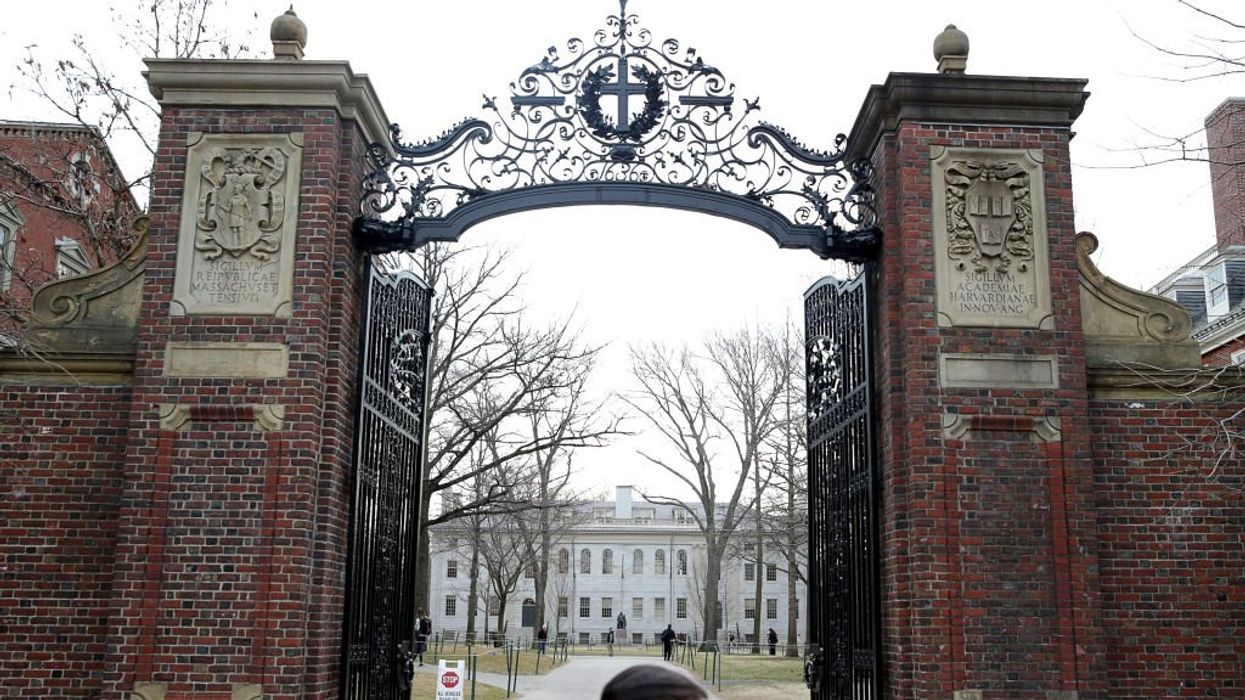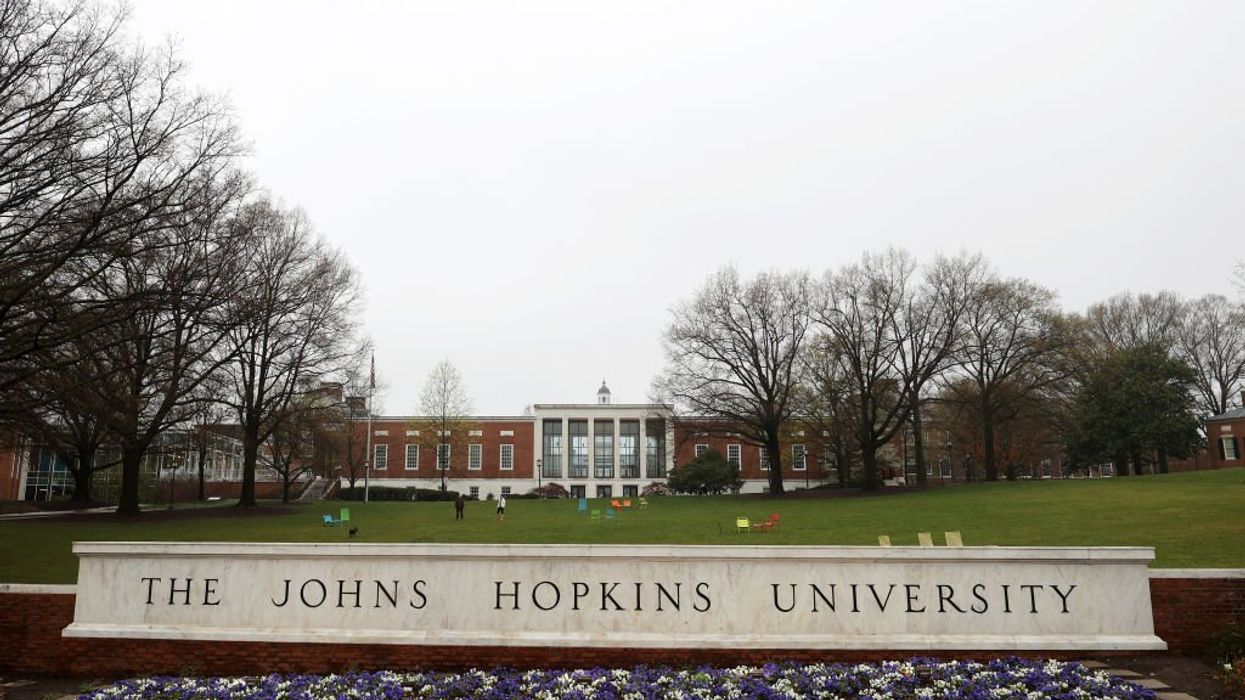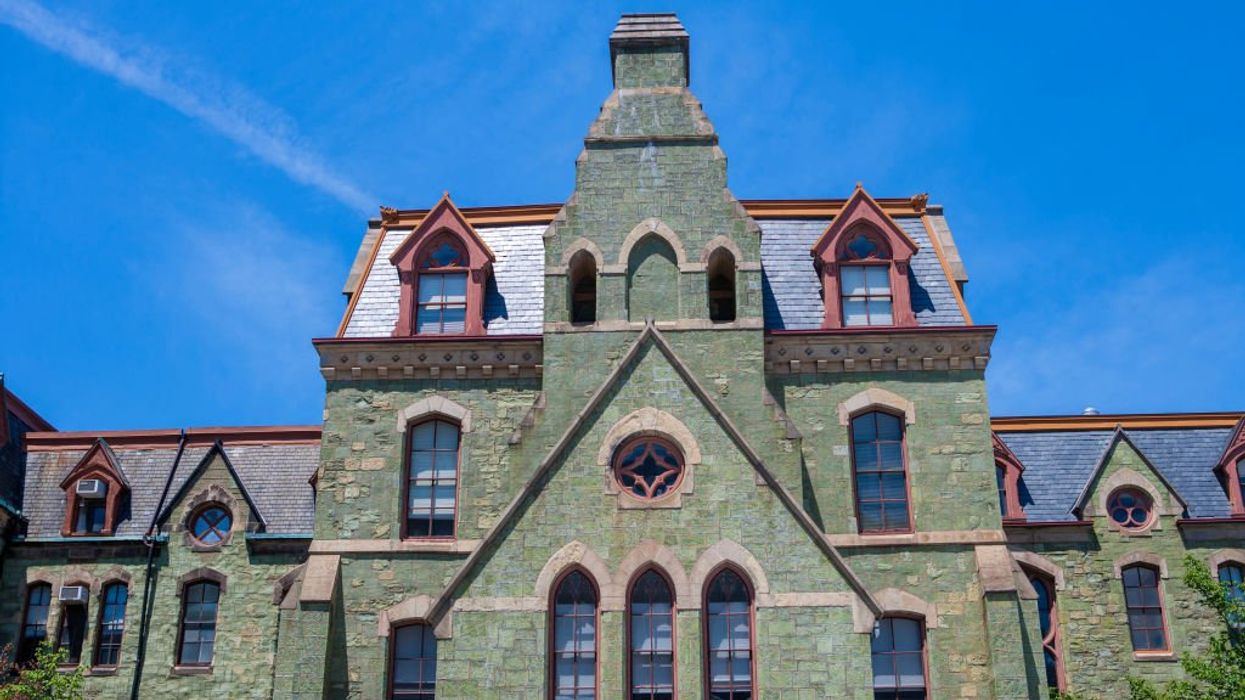TheBlaze Radio Network announced a new podcast entitled 'David Clarke: The People's Sheriff', today during Glenn's radio show. Host David Clarke is the current Sheriff of Milwaukee County, Wisconsin and is an outspoken defender of individual liberties.
The weekly, one-hour podcast will launch on Saturdays beginning June 6 and will focus on law enforcement issues, knowing your rights, commentary on current affairs, racial issues, 2nd Amendment matters, and the importance of empowering individuals rather than the state.
TheBlaze Radio Network's VP of Programming, Dom Theodore, said, "Sheriff Clarke calls it like it is - with an emphasis on common sense and individual responsibility. I'm thrilled to have him join our lineup of amazing talent at TheBlaze Radio Network, where we are committed to being a leader in digital spoken word content."
Sheriff Clarke said, "What an honor to be a part of TheBlaze Radio Network! This podcast is an opportunity to add to the conversation of well-thought-out reason on issues confronting America. I look forward to being a part of TheBlaze family, working to keep the public well informed."
Sheriff Clarke joined Glenn on radio this morning to discuss his new show, the militarization of police, and more.
GLENN: Today, I want to make a major announcement on something we're doing with Blaze Radio. Blaze Radio is -- is kind of an experiment that we've been working on and really kind of kept it pretty quiet. We don't really advertise it or anything else. And it is already the 19th largest stream in the world.
It is wildly successful and allows you to be informed where you want, when you want, how you want. And we have made some additions to Blaze Radio that have been really exciting lately. And we want to make an announcement that we're adding another voice to Blaze Radio. And it's Milwaukee County Sheriff David Clarke. He is a remarkable man and a voice that I think needs to be heard. Well-spoken, well-thought out. And we wanted to welcome him to the Mercury family now.
David, Sheriff, how are you?
DAVID: Good, Glenn. How are you doing? First of all, thank you for this opportunity. When I first came up, I said wow. I've had a lot to say recently over the last, you know, four, five, six, seven, eight years. But I've never had my own platform to do it. So it was always a situation where I had to be led by someone else's platform and whether they wanted to take a discussion. And I am so thrilled to be a part of the Blaze network, a brand that you have built, that you've grown and you've nurtured. And I simply want to add value to what you started. And participate in this larger conversation about America. You mentioned, it's not the country that I recognize anymore either.
But I think that it's important to provide pushback and a countermessage to this modern liberalism that's in full throttle, and that's what I want to do
GLENN: David, first of all, you'll add value. I've heard some of the test broadcasts that you've done. They're remarkable. My guy who used to be the head of CBS radio and Clear Channel radio, a truly remarkable man who is working with you on my behalf. He says that he believes you're one of the biggest talents he's ever heard. And that's only after the first show. You're a natural at this.
But more importantly, we're bringing you on, David, because you can speak with authority. And, you know, black lives matter. But white lives matter too. Young lives matter. Old lives matter. Blue lives matter. All life matters.
And we're getting into a place, David, that I don't -- I don't think this country has seen since the 1960s, and we're headed for real trouble with policing. With the militarization, with the disenfranchisement of the police, with the pitting of the police against the traditional supporters of the police, our cities are going to be in real trouble because I believe there's a real effort underfoot through people like the Nation of Islam and Al Sharpton and some of the friends of the president and the Black Panthers, to literally set our cities on fire. So we need a reasonable voice that can tell us and speak from a position of authority on what to do.
What do our policemen even do?
DAVID: That's kind of interesting. As you know -- many of your listeners may not -- I have 37 years of urban law enforcement experience. All my education -- my bachelor's degree is in Criminal Justice Management. My master's degree is in Security Studies, Homeland Security related to the United States Naval Academy Post Graduate School. It's been my life. It really has. I bleed blue. I tell people, if you cut me open, you won't find red. I bleed blue.
But, Glenn, I sat up and watched after the days of Ferguson, where this proud profession that I've been a part of just came under attack. And I've predicted -- and not because I'm in the prediction business. But I knew. I know cops. I know this profession. I know the importance -- cops matter. I know the importance that law enforcement and public safety has, especially in your urban centers. We have densely populated areas. You don't have all the social controls necessary for these things to work themselves out. So you need to have an intermediary. Especially in the American ghetto, that intermediary is the American police officer. White, black, Hispanic, Asian -- who else is going down into these areas? When we -- our police come under attack. It's, you know, the white cop who shoots the unarmed black guy. And our cops are racist.
You know, these are the smears that we hear. And I go, wait a minute. Who else is going down there? I don't see the politician down there. I don't see the loudmouth demagogue like Al Sharpton down there. It's the American police officer who puts his or her life on the line, is willing to sacrifice their life, if it means that, in service to who in the American ghetto? Other black people. So to hear them maligned like this really bothered me. So I decided to step up and start to fight back, like I said. Countermessage. Defend this proposition. Look, I've said -- and I know this, and everybody knows. But I'll say it anyway. Are cops perfect? Not by any stretch of the imagination. Are police departments perfect? Not even close.
However, these communities we're talking about, these are the finest they have. They go down there with the best of intentions to do right, to do it within the rules. And every once in a while, something goes horribly wrong. But then to come down and throw all the maladies and the pathologies of the urban ghetto on the back of the American police officer and say, you go down there and do something about it. Keep them from killing each other, raping, robbing, and pillaging, and, oh, by the way, if something goes horribly wrong, you know, like it did in Ferguson and in New York and in South Carolina and in other areas, including here in Milwaukee County, all of a sudden it's, oh, the cops are the bad guys now. Let's go attack the cops.
Glenn, we expect that. Because we've seen that before from cop haters. All my 37 years. I know people that just don't like the police. We expect that from that -- that cabal. What we did not expect this time around was to see it come from an unlikely source. And that unlikely source is the political class, who -- we know we need their backing. Not only for resources, but at times when, yeah, maybe we made a mistake or even if we didn't make a mistake, like in the case of Ferguson, there was no mistake made. We don't expect the political class to turn us upside down and to attack us and want us criminally indicted and so on and so forth. That's what's different this time around
GLENN: We're talking to David Clarke. He's the sheriff in Milwaukee County. And if the name sounds familiar and you can't quite place it, it's because he was the guy who was featured on radio ads in Milwaukee saying citizens should not rely on police for protection. They should arm themselves. And they should be -- they're the first responders. And we have talked to him several times. He is fearless. And speaks his -- speaks his mind. And, quite honestly, I think that's what we need.
David, you know, as -- as we're watching this -- I think the police are being set up, myself. We are now starting to see that they're not patrolling because they won't get the backup they deserve. You're also seeing the decay because of the militarization, you're seeing people like me who I'm a big supporter of the police. But I'm gravely concerned about the militarization of our police because of what this administration has stated its goals.
We have now Al Sharpton who is one of the czars with this administration coming out and saying that the Justice Department needs to take over local policing. When the president says he wants to cut back on the militarization, what he's saying is, he wants to -- he wants to just not sell them tanks. But in that executive order, and I don't know if you've read it, in that executive order, it talks about the Pentagon and the Justice Department partnering with the local police, all the way down to things like uniforms. And what their uniforms will look like. It's a very frightening thing.
How can you help bridge the gap on making sure that the cops know that the average citizen still has respect for them? But we are concerned about some of the things that they're now being required to do and some of the things this administration -- we're trying to speak out and warn and say, look, you're going to be left alone because you're being set up. Do you believe that? And how would you respond?
DAVID: First of all, let's unpack that a little bit because there's a lot there. Your concern. I share that concern. I'm not at war with my community here in Milwaukee County. And I don't think any agency -- I have said from the beginning that that 1033 Program needs better oversight. There's no doubt about that. But I don't think that the president should have thrown the baby out with the bathwater. He said some of this equipment belongs in a battlefield. And my first thought was, has he been down in the American ghetto recently? I know he lives life in a bubble.
When you hear, you know, 15 dead, 37 shot in Baltimore in a weekend -- on Memorial Day weekend. When you hear 40 people shot in a month. When you go to Chicago and you look at, in one weekend, Glenn, 15 dead, 37 injured, 40 injured, that sounds like a battlefield. That doesn't mean that we should do overkill in terms of some of the overplus equipment. I think it needs oversight. Each agency should have to make a stronger case as to why they need this equipment. Some of this equipment is missing. It's not even accounted for. So I think it needs more oversight.
However, I think the worse thing that we can do in the United States is federalize local policing. The Founding Fathers didn't want a federal police force. As far as I'm concerned, local policing is a state's rights issue. Each state is responsible for the -- securing the personal safety of their citizens in that city. There's a role for the federal government, and it's not running these agencies. It's not taking these agencies over. It's not telling these agencies, you know, one-size-fits-all. Training them. Setting up policies and standards.
And that's kind of what this whole 21st century task force that the president hastily threw together is trying to accomplish. You know, a one-size-fits-all. Every community is different. Every community's citizens -- and I think it's what you're speaking to, Glenn -- every community's citizens have different wants, needs, and standards. What they'll put up with, what they won't. So I think it needs to be left to the locals. I think it's a slap in the face of the state governments. Because if there's a problem in Ferguson with what was going on -- and there was. Okay. If there's a problem in one of these other cities as to what's going on, you have a state attorney general. You have other oversight. Each city has their own oversight board of civilians. And if they're not doing their job, well then, the state attorney general, I believe, should step in and maybe be that intermediary, not the United States attorney general and especially not the president of the United States.
GLENN: We're talking to Milwaukee County Sheriff David Clarke who is joining us now on Blaze Radio, Saturdays. It will be posted at noon Eastern at the Blaze.com/radio. A very outspoken guy. A guy who has been with us several times. And I want to take a quick break and come back and ask you one question. You're there in Milwaukee. I'd love to hear your impression of Scott Walker.
[BREAK]
GLENN: Milwaukee County Sheriff David Clarke joins us. He is the latest to join the Blaze Radio. You can find that at the Blaze.com/radio. And it will air on Saturdays. Or it will be posted on Saturdays. So you can hear him. He's fearless. He's the guy that Michael Bloomberg threw money hand over fist during his last campaign and he still won huge. He is a plainspoken guy who can speak with authority and tell you what's really going on from the police perspective. And we're proud to have him a part of Blaze Radio now because we're huge supporters of the police departments and they are coming under fire, big time.
Tell me about Scott Walker. Because we haven't -- we haven't quite made up our mind on him, David. From a distance, he seems to be good. But then there are times, wait a minute. He just kind of flip-flopped here. Is that who he is? Can you give us insight on him?
DAVID: First of all, I want to thank you again for the complimentary comments. I hope people do tune in on the Saturday podcasts. Give me a chance. I think they'll like it. As you know, I give people information unvarnished and no sugarcoating.
Full disclosure, first of all, I'm a friend of Scott Walker. We became friends because we both worked in Milwaukee government. I'm the Milwaukee County sheriff. Came in the same year that he did as County Executive, so we worked closely together. He's a strong supporter of law enforcement. Always made sure that we were properly funded.
But what I've learned about Scott Walker is he listens to people. He would come to me and say, Sheriff, I have this deal here or some funding situation. I want to know how this affects public safety. I would tell them. He's like, I don't know that I want to do that. He's very decisive, but he listens to his advisers. You can bet that he'll listen to his military commanders. You can bet that he'll listen to his economic advisers. But he will make the decision. He will not vacillate.
But the one thing I'm looking for. And I'm telling people now -- and I do have a bias about Scott Walker. But I say, vet everybody. Okay, they'll all do what you just mentioned. Every once in a while, you get a candidate, you say, hey, this guy is looking good. This woman is looking good. Then all of a sudden, boom. Oh, jeez. You know, flip-flop there. I'm not sure now.
That's what this process is supposed to do is weed all of that out. So I'm telling people. And I'll talk about this on some of my shows leading up into the 2016 election. But vet them all. They all have weaknesses. There's no perfect candidate. What I'm looking for is the person that will bring this country back to its founding principles. That's what we need right now. Leadership in that area. And I think that this process will allow us to identify that individual. I like Carly Fiorina. I like Marco Rubio. He has his issues. I like Ted Cruz. I'm not going to say I like all of them. I'm not a big fan of Rand Paul. Because he did some things that kind of insults me in meeting with Al Sharpton.
GLENN: Hang on. Okay. David, I'm out of time. But I'm hoping you'll give that story on one of your first podcasts. Thank you very much. Sheriff David Clarke new to the Blaze Radio.

































